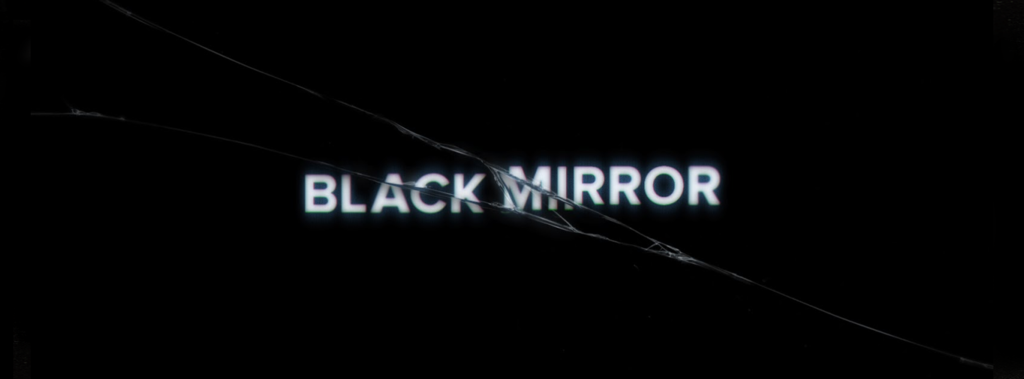
TV Writer Gwydion Elliott explores the technology behind the dystopian sci-fi Black Mirror in celebration of its tenth anniversary
‘That’s like something out of Black Mirror’ has become a common part of our language in the 10 years since the brilliant show first aired. Known for its dark tales of technology-gone-wrong, the series has made some eerily accurate predictions about the world we live in today, while also expressing an undercurrent of anxiety that runs through our society.
Things are always changing, on our phones and computers as well as in the world around us. Technology drives ever forwards, while our relationship to it gets more and more complex (see Instagram’s cover-up of harmful effects on teens, or the campaign of lies and misinformation that swayed millions of people into voting for Donald Trump). The force of technology churns on like an engine, spitting out both bad and good. Meanwhile, we sit and watch.
“The force of technology churns on like an engine, spitting out both bad and good. Meanwhile, we sit and watch
Enter Black Mirror. Taking its name from the dark, glossy screens of our switched-off devices, the show aims to examine how technology can reflect on who we are. In imagined near-futures, tech is extrapolated from what we have today, or invented anew, almost always leading to the dire misfortune of the main character. Watching these tragedies play out inspires a consideration of our relationship with tech today. That’s the value of Black Mirror, and indeed any good sci-fi – putting our world into perspective.
It’s quite a shocking thing, then, when the fanciful events of Black Mirror jump straight into real life. The first episode of Season Three, ‘Nosedive,’ follows Lacie Pound (Bryce Dallas Howard), who lives in a world where everyone uses their phones to rate each other on a 5-star scale after each social interaction. Everyone has an average rating based on these scores – to move from a 3.2 to a 4.6, you’ll need to be extra nice to your co-workers, and make sure you don’t cut anyone off in traffic. Lacie is obsessed with getting her rating higher, and for good reason: a better score gives you all sorts of benefits, from a discounted mortgage on a fancy house to more legroom on your flights, and in Lacie’s case, attendance to her hyper-popular friend’s wedding. More than anything, Lacie’s just desperate to be popular, and along with everyone else is caught in a never-ending struggle towards the top of the social pyramid.
“That’s the value of Black Mirror, and indeed any good sci-fi – putting our world into perspective
A thought-provoking commentary on social-climbers and influencers, but surely not a reality, right? As it turns out, social credit systems are being developed and implemented in China, and have drawn a lot of comparisons with ‘Nosedive’. ‘Bad’ behaviour is punished, while ‘good’ behaviour is rewarded, forming an individual score that is tied to you and built from data collected by a vast surveillance network. As Wired notes, the system is more complicated than what we see in the episode but has the potential to be much worse.
‘Be Right Back,’ the debut episode of Black Mirror’s second season, sees a grieving woman bring her dead boyfriend back to life first as a chat bot on her phone and then later as a completely life-like animatronic robot. Martha’s (Hayley Atwell) relationship to Ash (Domhnall Gleeson), and to the grief she feels over his loss, is upended by these technological revelations, as the episode explores what it means to lose and let go of someone you love. Inspired in part by this episode, entrepreneur Eugenia Kuyda created a chatbot to memorialise a friend of hers, Roman Mazurenko, who had recently passed away. By feeding thousands of text messages to a machine learning algorithm, Kuyda created a bot which spoke just like him. This project drew some criticism, while others who knew Roman found that it was touching and emotional to be able to speak to the bot. Roman’s mother said of the bot: ‘Now that I can read about what he thought about different subjects, I’m getting to know him more. This gives the illusion that he’s here now […] I’m very grateful that I have this.’
These aren’t the only times when Black Mirror’s speculative sci-fi has struck gold and predicted something we’d later be doing in real life. The show’s accuracy is a testament to the maturity and sophistication of its storytelling, as well as to the fantastic and terrifying nature of our possible futures. For its warnings and its inspirations, we should be thankful for Black Mirror.
Want more TV opinion pieces?

Comments